This article was co-authored by Dina Garcia, RD, LDN, CLT. Dina Garcia is a Registered Dietitian, Nutritionist, and the Founder of Vida Nutrition and Conscious Living, her private practice based in Miami, Florida. Dina specializes in helping yo-yo dieters and binge eaters overcome food guilt, practice self-love, and rediscover self confidence. She has over 15 years as a dietitian. She received a BS in Dietetics from Ball State University and completed her supervised dietician practice at California State University, Fresno. She is certified as a Registered Dietitian (RD) by the Commission on Dietetic Registration and is a Florida Licensed Dietician/Nutritionist (LDN).
There are 19 references cited in this article, which can be found at the bottom of the page.
This article has been viewed 151,145 times.
In the United States, nearly 30 million people of all ages and genders are afflicted with eating disorders. Among those who suffer, a large majority are female.[1] If you or someone you know exhibits the signs of an eating disorder, it's important to take action immediately. These conditions have the highest mortality rate of all mental disorders, so getting help for yourself or your loved one could save a life.
Steps
Recognizing Ways Everyone Can Help
-
1Familiarize yourself with the different types of eating disorders. This article focuses on the three main eating disorders. According to the accepted psychiatric categorization system in the DSM-V, eating disorders include three main disorders: anorexia nervosa, bulimia nervosa and binge-eating disorder.[2] It's important to be aware that there are other types of eating disorders, too. If you have a difficult or unhappy relationship with food, speak with someone in the medical or therapy profession who can help to identify your particular problem.
- Anorexia nervosa is an eating disorder characterized by not eating and excessive weight loss. For people with anorexia, the desire to lose weight becomes an all-consuming obsession. It has three main characteristics: the inability or refusal to have a healthy body weight, the fear of gaining weight, and a distorted body image.[3]
- People with bulimia nervosa have recurrent binge eating obsessions and then use various purging methods, such as vomiting or laxative abuse, in order to keep themselves from gaining weight as a result of binge eating.
- Binge-eating disorder occurs when a person eats large amounts of food impulsively. Unlike bulimia, people with a binge eating disorder do not purge afterwards, although they may diet sporadically because of guilt, self-hatred or shame.
-
2Learn about the factors that cause or contribute to eating disorders. There are a number of possible contributing risk factors associated with eating disorders. These may include: neurobiological and hereditary factors, low self-esteem, high anxiety, the desire to be perfect, the constant need to please people, troubled relationships, sexual or physical abuse, family conflict or the inability to express emotions.[4]
- If you are interested in learning more about eating disorders, research these conditions on reputable sites such as the National Eating Disorders Association, the National Institute of Mental Health, the National Association of Anorexia Nervosa and Associated Disorders.
Advertisement -
3Consider donating to organizations that help those with eating disorders. There are many organizations, like those listed above, working to improve the knowledge of eating disorders and to help those suffering from such disorders. If you know someone or are caring for someone suffering from an eating disorder, making a donation can help to fight against eating disorders by improving the services offered and the dissemination of knowledge.
-
4Quit body-shaming. Body-shaming is the act of being critical about your own or someone else's body. People may down themselves saying things like "I'll never be able to wear a bathing suit with this stomach." Individuals such as parents, sibling, and friends may also criticize others in front or behind their backs. For example, a mom might make a harsh comment to her daughter like "You won't find a date to prom if you don't drop a couple of pounds."[5]
- Simply put, if you do not have something positive or encouraging to say about yourself or someone else, avoid saying anything at all. Words can hurt. You might be just kidding around but the people who are listening might take your words to heart.
- Stand out against others (i.e. friends, family, co-workers, the media, etc.) who body-shame. And, make a choice to promote those who highlight something positive about all bodies.
- "Diet culture" is cultural trend where we place a high value on people's appearance—especially their physical fitness—and prize dieting for weight loss. However, dieting isn't the same as following a nutritious diet, and you can't tell how healthy someone is just by looking at them.[6]
Overcoming Your Own Eating Disorder
-
1Pay attention to the physical warning signs. You must be honest with yourself when you spot the warning signs of an eating disorder. Having such a condition can be life-threatening. Don't underestimate the seriousness of your eating disorder, and don't overestimate your ability to treat yourself. Some of the warning signs to heed include:
- You're underweight (less than 85 percent of the accepted norm for your age and height).
- Your health is poor – you've noticed that you bruise easily, you have no energy, your skin is pale and sallow and your hair is dull and dry.
- You're dizzy, you feel the cold much more than others (bad circulation), your eyes are dry, your tongue is swollen, your gums are bleeding, and you're retaining water a lot.
- If you are female and you've missed three or more menstrual cycles.
- For bulimia some additional signs may be that you have teeth marks on the back of your fingers, nausea, diarrhea, constipation, and swollen joints.
-
2Take note of behavioral signs of eating disorders. In addition to physical changes that affect your body, eating disorders are also associated with emotional and behavioral affects. These may include:
- If someone told you that you're underweight, you wouldn't believe them and you'd even argue the opposite; and you may not be able to take any suggestions about your being underweight seriously.
- You're prone to wearing baggy or loose clothing to try to hide a sudden or dramatic weight loss.
- You're making excuses not to be present at meals or you've found ways to eat very little, hide the food or throw it up afterward
- You're obsessed with diets, talking about dieting and with finding ways to eat less food.
- You're terrified of being or getting "fat;" you're harsh on yourself about your shape and weight.
- You're following a grueling and punishing exercise regimen that could be viewed as over-exercising.
- You're avoiding relationships or going out with people.
-
3Talk to a therapist who specializes in treating eating disorders. A trained professional can help you work through the thoughts and feelings that are compelling you to diet excessively or binge-eat. If you feel too ashamed to talk to anyone, be reassured that a therapist trained in eating disorders will not make you feel ashamed of yourself. These therapists have devoted their professional lives to helping others overcome eating disorders. They know what you're going through, they understand the underlying causes and, more importantly, they can help you work through them.
- The best treatment approach for managing eating disorders is some form of therapy or psychological counseling in conjunction with close management of medical and nutritional needs.[7] [8]
- When you attend therapy, you can expect:
- To be listened to respectfully.
- To have a chance to tell your entire story and to ask for targeted help.
- To be released from the pressures family and friends might be placing on you. A therapist can act as a buffer and a counselor for them, too, or, at the very least, teach you coping strategies during the healing process and how to overcome conflicts within the family setting.
- To be treated as someone valuable and to be reassured that, with the right tools in place, you can get well again.
-
4Determine why you may have developed disordered eating habits. You can help the therapy by doing some self-exploration into why you feel compelled to keep losing weight and to despise your body. There may be some self-revelations that help you to personally better understand how your eating habits have morphed into an unhealthy way of coping with something else that harms you, such as family conflict, lack of love or never feeling good enough.[9] [10]
- Is there an area in you life in which you feel out of control?[11] Have there been recent changes in your life that you don't like (divorce, moving to a new city) but you cannot control?
- Have you been abused physically, emotionally, or sexually?[12]
- Does your family have rigid standards of perfection? Is your family over-protective, controlling, and lack boundaries?[13]
- Are your parents uninvolved in or detached from your life?[14]
- Are you comparing yourself to others? Media images are the worst culprits in this instance but also friends, popular people and people you look up to can be a source of comparison.
- Do you eat junk food or eat more when you are emotional? If so, this may have become a habit that kicks in unconsciously and has taken the place of more appropriate self-soothing activities such as challenging negative self-talk or learning to praise yourself for all the good you do.[15]
- Do you think having a thinner body will allow you to perform better in your sport? While some sports, like swimming or gymnastics, may favor smaller, lithe bodies (pertaining to women), keep in mind that many other factors go into determining who is successful in any sport. No sport is worth sacrificing your health for.
-
5Keep a food journal. A food journal has two purposes. The first, more practical purpose, is to establish your eating patterns and to allow you and your therapist to work out what types of food you're eating, when and how. The second, more subjective part of a food journal, is to write down your thoughts, feelings and emotions associated with the food habits you've cultivated. And, ultimately, it's a place to write down your fears (so that you can face them) and your dreams (so that you can start planning goals and working toward them). Some things to explore in your food journal include:[16]
- Ask yourself what you might be going through. Are you comparing yourself to models in magazines? Are you under tons of stress (school/college/work, family issues, peer pressure)?
- Write down the rituals around food that you've developed and how you feel about these.
- Write down your feelings about your struggle to control your eating patterns.
- If you're manipulating people to deceive them and hide your behaviors, how does that affect your relationships and closeness with others? Explore this issue in your food journal.
- Write down things that you have accomplished in your life. It will help you to better realize what you have done. Such a list will make you feel better about yourself when you see the good things add up.
-
6Seek support from a trusted friend or family member. Talk to this person about what you're going through. It will often be the case that they will be worried about you and will be very willing to try to help you work through the eating disorder, even if it's just about being there for you.
- Learn to express your feelings out loud, and be okay with the feelings that you have. Being assertive is not about being arrogant or self-absorbed – it's about letting others know that you're valuable too and deserve to be valued in turn.
- One of the key factors underlying many disorders is an unwillingness or an inability to stand up for oneself and to fully express one's own feelings and preferences. Once this becomes a habit, the loss of assertion makes you feel less worthy and less able to move through conflict and unhappiness. As a result, the disorder becomes a crutch of sorts that "orders" things (albeit in a very skewed and unhealthy way).
-
7Find other ways to cope with your emotions. Find positive outlets in which to relax or unwind after a stressful day—something that doesn't involve food. Allow yourself these personal moments of down time, focused just on you. For example, listen to music, take a hike, watch the sunset, or write in a journal. The possibilities are endless – find something you enjoy doing that relaxes you to help you deal with harmful and stressful emotions.[17]
- Do something you have long wanted to do but haven't yet made the time or arrangements to do. Take a class to learn something new that you have always wanted to try, start a blog or website, pick up a musical instrument, go on a vacation, or read a book or series of books.
- Alternative treatments may be useful in helping with an eating disorder. Talk to your health care provider about the possibility of trying activities like meditation, yoga, massage, or acupuncture.[18]
-
8Adopt healthy coping mechanisms to counteract stress. Ground yourself when you feel out of control. Call someone on the phone and focus on the person's voice, touch things close to you, such as a desk, counter, fluffy toy or wall, or hug someone you feel safe with. Grounding techniques allow you to reconnect with reality and refrain from dwelling in either the past or present.
- Get quality sleep and institute a healthy sleeping routine. Sleep can restore both your perspective and your energy. If you're not getting enough sleep already due to stress and worry, explore ways to improve your sleep routine.
-
9Be as kind to yourself as you are to other people. Look at people around you that you find beautiful with all their quirks. Appreciate yourself in the same ways. Look at the beauty inside you instead of focusing on the flaws. Stop being so harsh on your looks – every configuration of the human body is a miracle, a moment of life breathed into the continuum of time, and you deserve to be happy and here right now.
-
10Put away the scale. Nobody should weigh themselves daily, eating disorder or not. To do so is to map an unrealistic fluctuation of personal weight and to set oneself up for an obsession with numbers instead of focusing on the greater whole. Gradually reduce the frequency of self-weighing until you're only weighing yourself once or twice a month.
- Let your clothes be your indicator rather than your scale. Choose your most favorite outfits that are in the healthy weight range and use them as the barometer of looking good and being at a healthy weight.
-
11Take baby steps. Notice every little change to a healthier self as a big step in the healing process. Increase your food portions gradually, exercise slightly less frequently, etc. Trying to stop abruptly will not only be harder on yourself emotionally, but can shock your body and cause other health problems. Again, this aspect is best done under the supervision of a professional, such as your eating disorder specialist.
- If you are severely underweight, taking baby steps will not be possible. In such cases, you will likely be hospitalized and placed on nutritional regimen to ensure your body is getting the essential nutrients it needs.
Helping a Friend Combat an Eating Disorder
-
1Learn how to identify an eating disorder. If you see the signs in your friend, don't hesitate to step in. This condition has become very serious once the signs listed above are evident. The sooner you can help your friend to fight the eating disorder, the better.
- Educate yourself on the eating disorder by reading about it.
- Be prepared to do all you can to get the sufferer into appropriate professional treatment as quickly as possible. Also be prepared to support the treatment process and to be a helper or supporter if needed.
-
2Talk to your friend privately. Pull your friend aside and candidly ask about what they are going through, and tell the person what you have noticed. Be gentle and above all non-judgmental. Explain to them that you're worried about them and would like to help in any way you can. Ask them to suggest ways that you can help.
- Be a source of calm in their life. Avoid exaggerating, displaying shock or ranting.
- For example, avoid assigning blame like "I knew you shouldn't have been hanging with those girls. They are all underweight."
-
3Show your concern by using "I" statements. Instead of shaming your friend, just let them know how worried you are. Say things like "I care about you and want you to be healthy. What can I do to help you?"[19]
-
4Be there. Listen to their problems without judgement, and let them express their emotions without them feeling like you don’t care about their problems. This requires genuine listening skills and rephrasing or summarizing of their feelings so that they are certain that you've both heard and acknowledged their pain. Be supportive but don't seek to be controlling.
- See How to listen for more tips on active listening.
- Be affectionate, caring and open. Love them for who they are.
-
5Do not talk about food or weight in negative ways. If you go out for lunch, avoid saying things such as “I want an ice cream so badly, but I really shouldn't...” Also, don't ask what they have or have not eaten, how much weight they have lost or gained, and so forth, and never express disappointment in their weight loss.
- Avoid demanding that they gain weight.
- Never humiliate or blame the sufferer for their eating disorder. This is well beyond willpower.
- Avoid making jokes about body weight or other things that your friend could take the wrong way.
-
6Stay positive. Give your friend compliments, and help boost their self-esteem in everything they do, not just their body image. Have a praise-fest whenever they're around you. Support your friend who has an eating disorder through this difficult time with love and kindness.
-
7Get help for your friend. Talk to a counselor, therapist, spouse or parent about the best ways to help your friend. As stated earlier, this is the most important part of your friend's ability to recover, so do what you can to facilitate it.
Taking Action for Parents and Other Caregivers
-
1Note the suggestions outlined under the section for friends. Many of these approaches are equally applicable to those in a position of caring for or living with the sufferer of an eating disorder. Above all, be sure that the person is getting medical attention and treatment; if you are legally responsible for the person, then be sure to get them professional help immediately.
- Most of this section presumes that the person with an eating disorder is either a child or an adolescent, but adult children or household members can be substituted for most of these steps too.
-
2Be calm and supportive. As a family or household member, you will be in constant contact with the child or adolescent sufferer and they need to know that you're not angry with them or that you'll burst out into demands every time they appear. This may feel very constraining for you but this is a time for your learning as much as for the sufferer and you'll need patience, courage and a calm attitude to be a positive and effective supporter.
- Show affection and kindness. The person needs to know they are loved. "I love you ____. We are all going to get through this together."
- Support the therapy process but don't try to invade your loved one's privacy or take control of it. Don't ask intrusive questions, don't address the issue of weight directly with them and if you have specific concerns, raise them directly with the therapist or doctor.
-
3Maintain a household of love and care for all members. Don't neglect other people as a result of supporting the sufferer. If worry and attention is directed to them alone, others will feel neglected and they will feel unduly focused upon. As best you can (and expecting everyone else to do so too), focus on creating a balance in the household that nurtures and supports everyone.
-
4Be emotionally available. It may be tempting to ignore, withdraw or abandon the sufferer if you feel helpless or angry about the situation. However, withdrawal of your emotional support will harm them intensely. It is possible to love them and to handle their manipulative ways effectively. If you find this difficult, speak to the therapist for suggestions.
- Your child will recognize your concern if, instead of rushing them, you just let them know that your door is always open if they need to talk. "I know that you are confused. I understand that you may need time to process all that's going on. I just want you to know that I am here for you and you can talk to me about anything."[20]
-
5Treat food as a life-sustaining, healthy and fulfilling part of the household routine. If anyone in the household obsessively talks about food or weight, they will need to tone it down. Have a talk to any family or household member who does this without thinking. Moreover, do not use food as a punishment or reward when raising children. Food is something to be valued, not to be rationed or used as a reward. If this means that the whole family needs to change the way it views food, then this is a good way to move forward for everyone.[21]
- Don’t try to limit the sufferer's food intake, unless you have been specifically told to do so by a medical professional.
-
6Be critical of media messages. Teach the child or adolescent sufferer to not accept media messages outright. Teach them critical thinking skills and encourage them to question the messages that media gives, as well as learning to question the messages from peers and others who influence them.[22]
- Encourage open communication from a young age. Teach the child or adolescent to communicate with you openly and honestly, and talk to them in the same way. If they don't feel like they have to hide anything, a key element of eating disorders is already removed.
-
7Build the child or adolescent sufferer's self-esteem. Show the sufferer that you love them no matter what, and give them compliments and praise for things done well frequently. If they fail at something, accept it and help them learn to accept it as well. In fact, one of the best lessons a parent or caregiver can impart is how to learn from failure and how to build resilience to try again.
- Help your child accept and appreciate their body. Encourage physical exercise and self-confidence in their body from a young age. Explain the importance of flexibility and strength created through exercise and help them to gain an appreciation of being outdoors and in nature by taking frequent walks, bike rides, hikes and runs together. If you can, participate in family running, biking, or triathlon events so that the children grow up seeing activity as healthy and bonding.
Expert Q&A
-
QuestionWhat can I do instead of comfort eating?
 Dina Garcia, RD, LDN, CLTDina Garcia is a Registered Dietitian, Nutritionist, and the Founder of Vida Nutrition and Conscious Living, her private practice based in Miami, Florida. Dina specializes in helping yo-yo dieters and binge eaters overcome food guilt, practice self-love, and rediscover self confidence. She has over 15 years as a dietitian. She received a BS in Dietetics from Ball State University and completed her supervised dietician practice at California State University, Fresno. She is certified as a Registered Dietitian (RD) by the Commission on Dietetic Registration and is a Florida Licensed Dietician/Nutritionist (LDN).
Dina Garcia, RD, LDN, CLTDina Garcia is a Registered Dietitian, Nutritionist, and the Founder of Vida Nutrition and Conscious Living, her private practice based in Miami, Florida. Dina specializes in helping yo-yo dieters and binge eaters overcome food guilt, practice self-love, and rediscover self confidence. She has over 15 years as a dietitian. She received a BS in Dietetics from Ball State University and completed her supervised dietician practice at California State University, Fresno. She is certified as a Registered Dietitian (RD) by the Commission on Dietetic Registration and is a Florida Licensed Dietician/Nutritionist (LDN).
Registered Dietitian-Nutritionist Start by giving yourself some down time so you can relax. Then, find stress relievers that aren't food, like listening to music, hiking, journaling, or watching the sunset.
Start by giving yourself some down time so you can relax. Then, find stress relievers that aren't food, like listening to music, hiking, journaling, or watching the sunset.
Warnings
- If you ever feel tempted to not eat for several days in a row or throw up after you've just eaten, stop. This is how an eating disorder begins.⧼thumbs_response⧽
Things You'll Need
- Food journal
- Therapist trained in eating disorders
References
- ↑ http://www.anad.org/get-information/about-eating-disorders/eating-disorders-statistics/
- ↑ http://www.dsm5.org/documents/eating%20disorders%20fact%20sheet.pdf
- ↑ http://www.helpguide.org/mental/anorexia_signs_symptoms_causes_treatment.htm
- ↑ http://www.nimh.nih.gov/health/topics/eating-disorders/index.shtml
- ↑ https://www.waldeneatingdisorders.com/blog/body-shaming-what-is-it-why-do-we-do-it/
- ↑ Dina Garcia, RD, LDN, CLT. Dietician/Nutritionist.
- ↑ http://www.nationaleatingdisorders.org/treatment
- ↑ http://psychcentral.com/lib/treatment-and-management-of-eating-disorders/
- ↑ http://www.ulifeline.org/articles/400-eating-disorders-why-do-they-happen
- ↑ http://www.nimh.nih.gov/health/publications/eating-disorders-new-trifold/index.shtml
- ↑ http://www.nationaleatingdisorders.org/factors-may-contribute-eating-disorders
- ↑ http://www.nationaleatingdisorders.org/factors-may-contribute-eating-disorders
- ↑ http://www.pbs.org/perfectillusions/help/faq.html
- ↑ http://www.pbs.org/perfectillusions/help/faq.html
- ↑ Dina Garcia, RD, LDN, CLT. Dietician/Nutritionist.
- ↑ http://www.everydayhealth.com/eating-disorders/journaling-to-treat-eating-disorders.aspx
- ↑ Dina Garcia, RD, LDN, CLT. Dietician/Nutritionist.
- ↑ http://www.mayoclinic.org/diseases-conditions/eating-disorders/basics/alternative-medicine/con-20033575
- ↑ https://www.nationaleatingdisorders.org/what-should-i-say
- ↑ https://nedc.com.au/support-and-services/families-supports/what-to-say-and-do/
- ↑ http://eatingdisorder.org/blog/2012/02/when-someone-you-love-has-an-eating-disorder/
- ↑ https://www.nationaleatingdisorders.org/media-body-image-and-eating-disorders
- Dr Pamela Stephenson Connolly, All or Nothing: Eating Disorders, pp. 108-121, in Head Case: Treat Yourself to Better Mental Health, (2007), ISBN 978-0-7553-1721-9 – research source
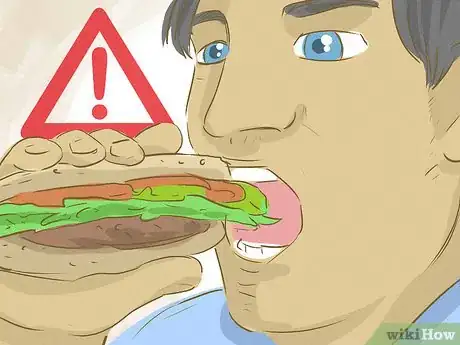
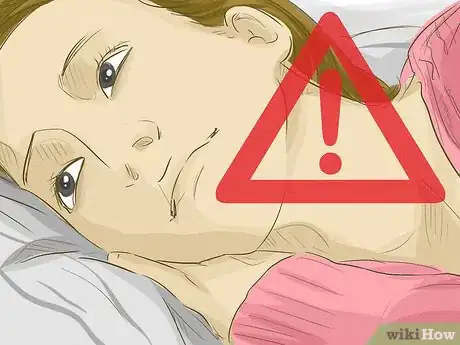

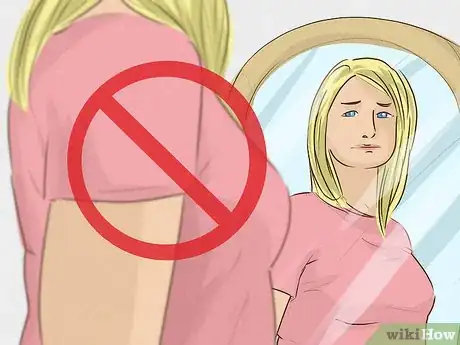
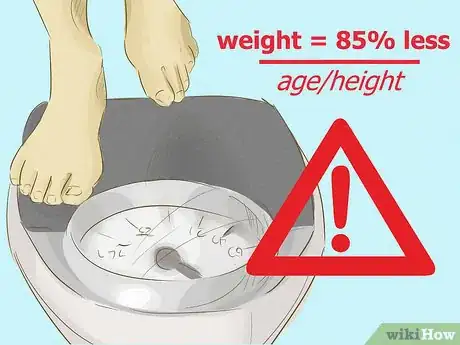
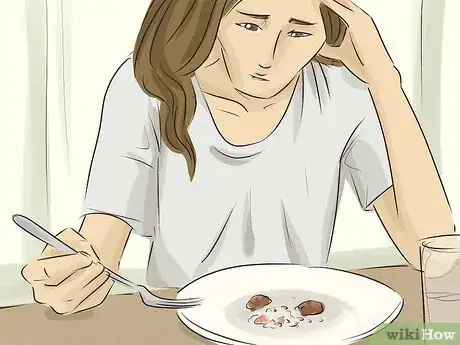
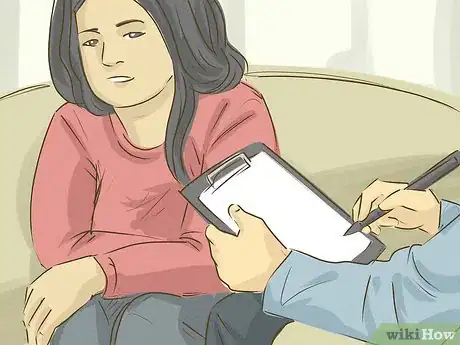
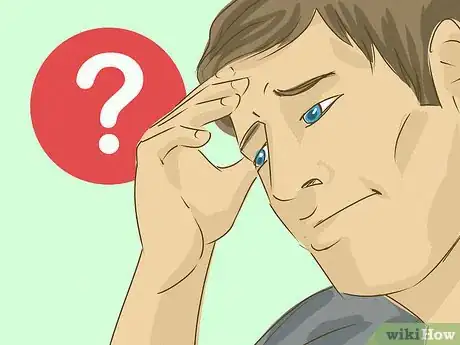
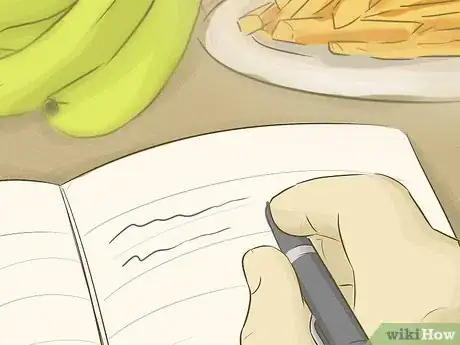
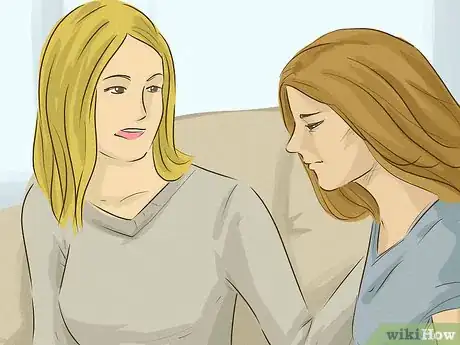

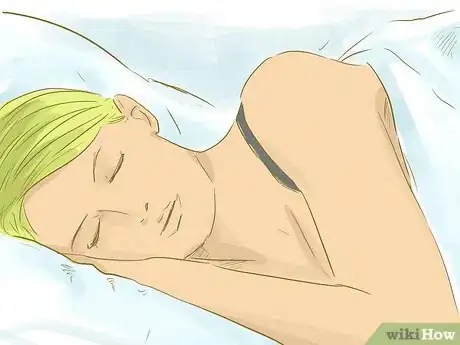

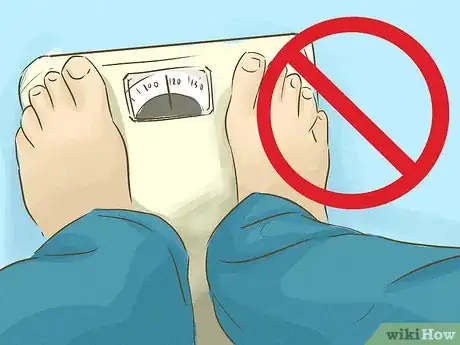

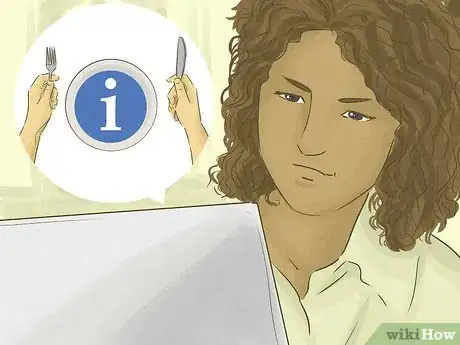

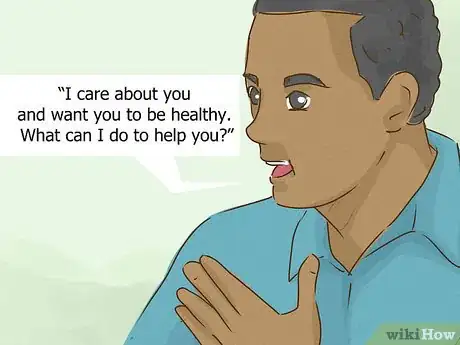
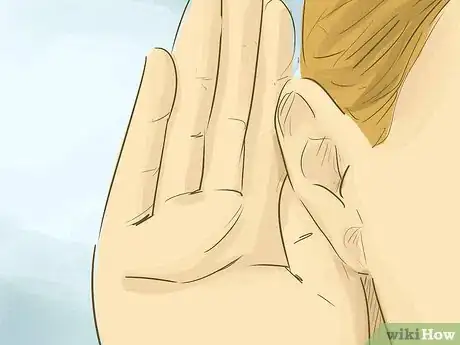
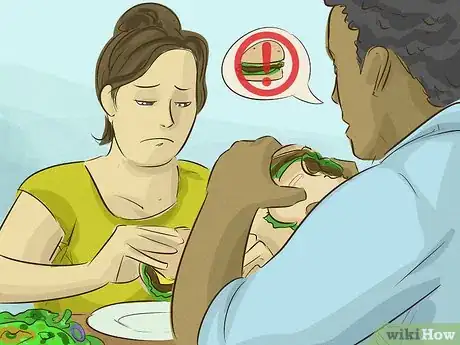

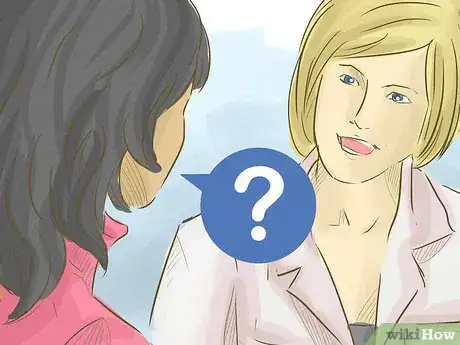
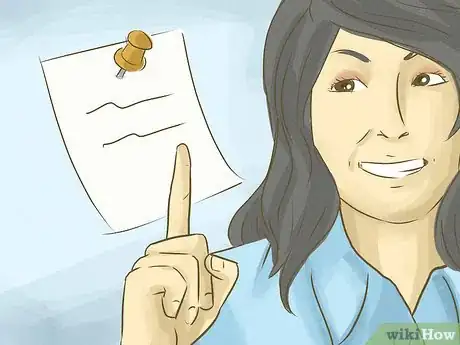
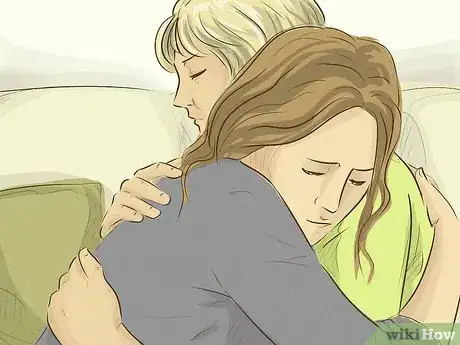
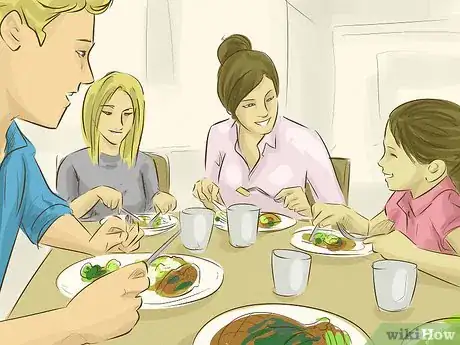
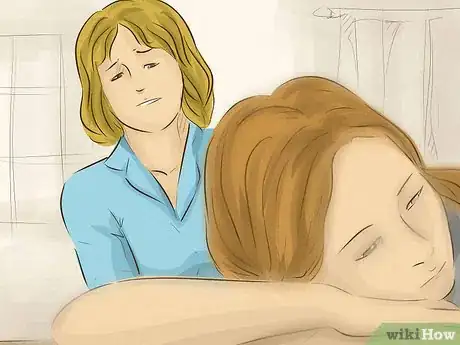
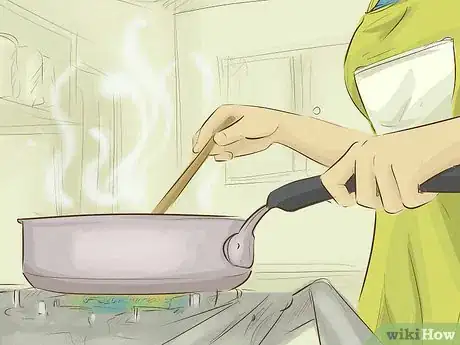
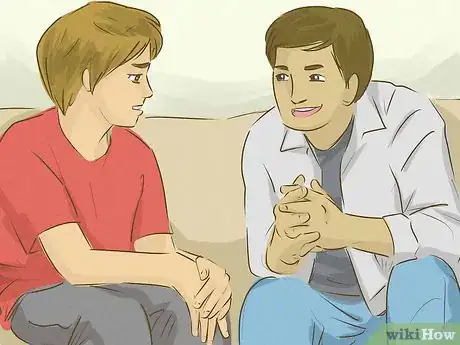
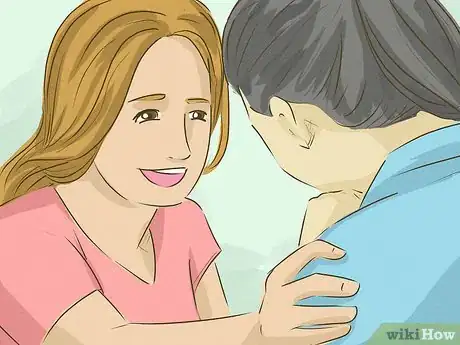






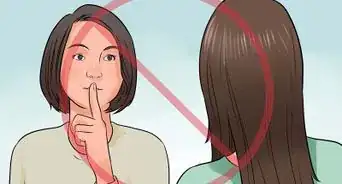

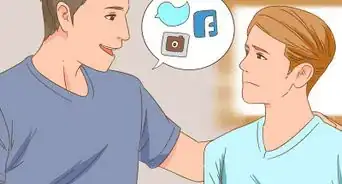




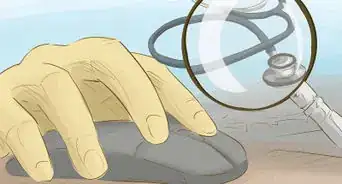















































Medical Disclaimer
The content of this article is not intended to be a substitute for professional medical advice, examination, diagnosis, or treatment. You should always contact your doctor or other qualified healthcare professional before starting, changing, or stopping any kind of health treatment.
Read More...